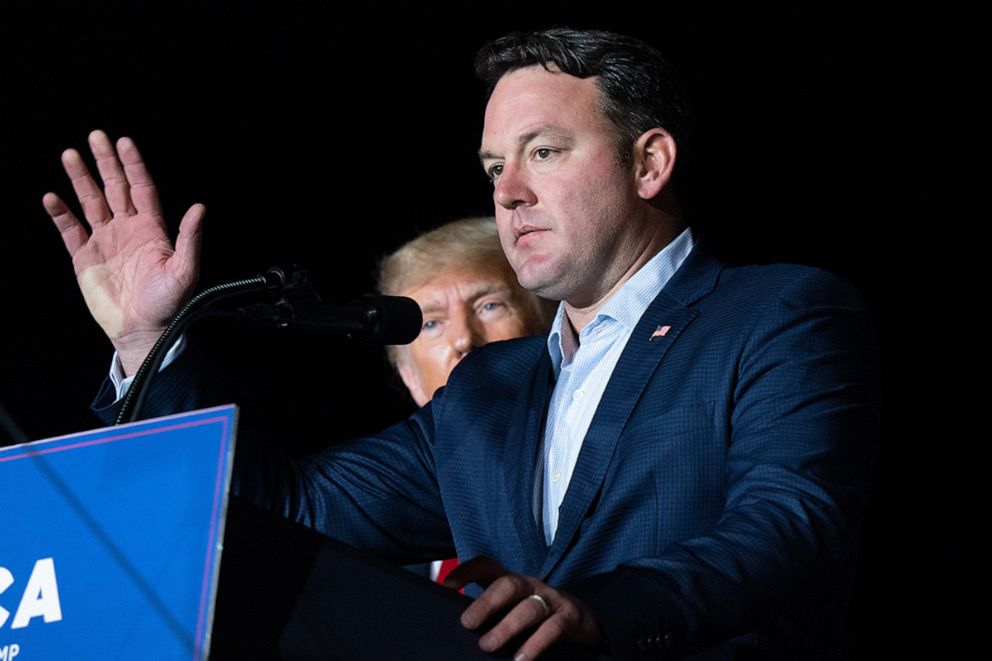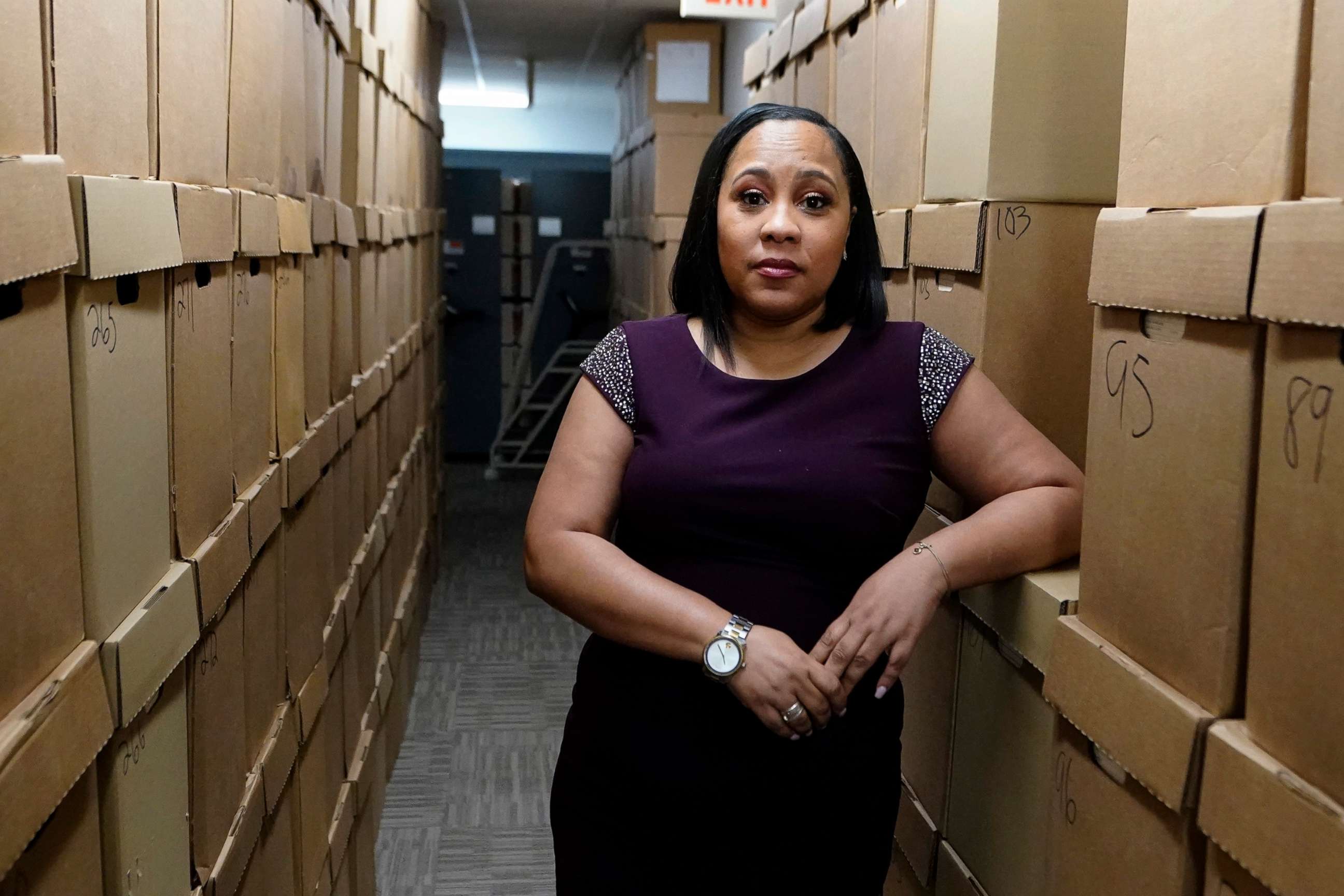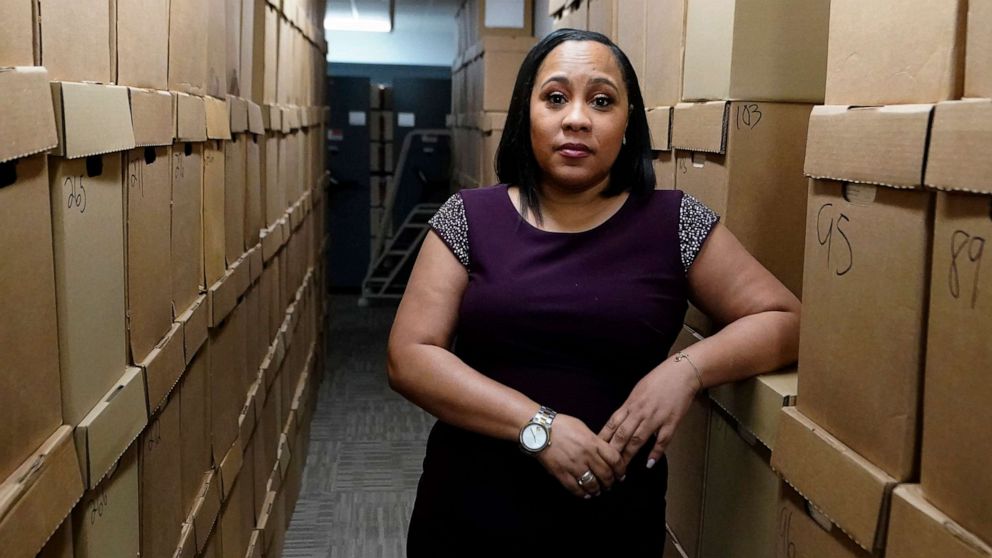Georgia prosecutor barred from investigating 1 of 16 alleged 'fake electors'
The judge overseeing the Georgia investigation into former President Donald Trump's efforts to overturn the 2020 election has disqualified the Fulton County district attorney leading the probe from investigating one of the state's 16 alleged "fake electors," because the DA held a fundraiser for his political opponent.
Georgia state Sen. Burt Jones, currently the GOP candidate for lieutenant governor, was one of the 16 alleged "fake electors" identified last week as a target of the Georgia probe.
Fulton County District Attorney Fani Willis held a fundraiser for Jones' opponent, Democratic lieutenant governor candidate Charlie Bailey, in June, which was "well after" a grand jury had begun hearing evidence in the election case -- a decision that Fulton County Judge Robert McBurney said was "harmful" to the investigation.
"This scenario creates a plain and actual and untenable conflict," McBurney wrote. "This choice ... has consequences."
Bailey won the Democratic runoff election on June 21, just days after the fundraiser, and will now face Jones in November.
The alleged fake electors were said to be part of a Trump campaign effort that assembled "groups of individuals in key battleground states and got them to call themselves electors, created phony certificates associated with these fake electors and then transmitted these certificates to Washington, and to the Congress, to be counted during the joint session of Congress on January 6th," according to the House committee investigating the Jan. 6 attack on the Capitol.
"An investigation of this significance, garnering the public attention it necessarily does and touching so many political nerves in our society, cannot be bordered by legitimate doubts about the District Attorney's motives," wrote the judge.

At a hearing last week to hear evidence on the issue, McBurney slammed Willis' decision to hold the fundraiser, calling it a "'What are you thinking?' moment."
"The optics are horrid," he said.
Any decisions about whether charges should be brought against Jones, and what they should be, will now be left to a different prosecutor's office that will be determined by the Georgia attorney general, McBurney ruled.

The decision does not mean that Willis cannot gather evidence about Jones' alleged involvement in the election efforts, the judge said -- but the DA and her team may no longer subpoena Jones or seek records from him, nor may they publicly categorize him as a target, nor may they ask the grand jury to include any recommendations about him in their final report.
Jones' attorney did not respond to a request for comment from ABC News.




